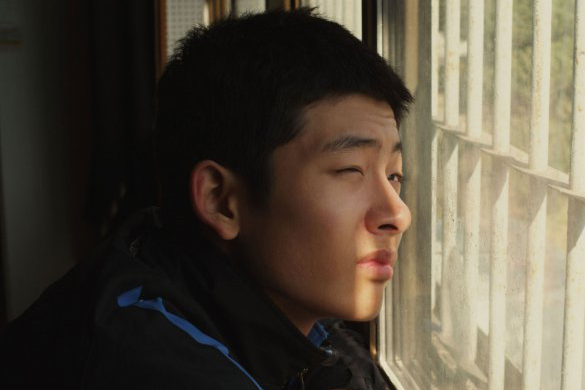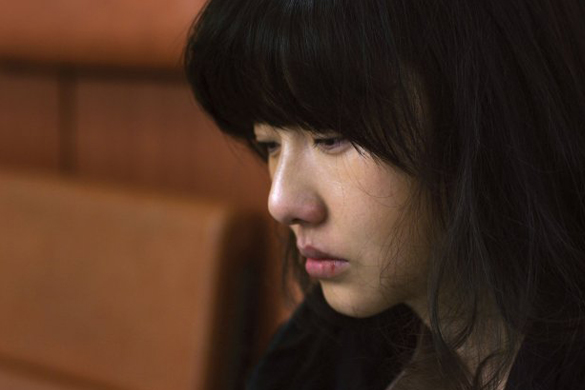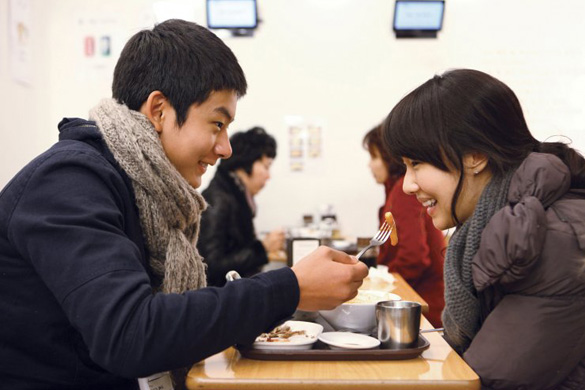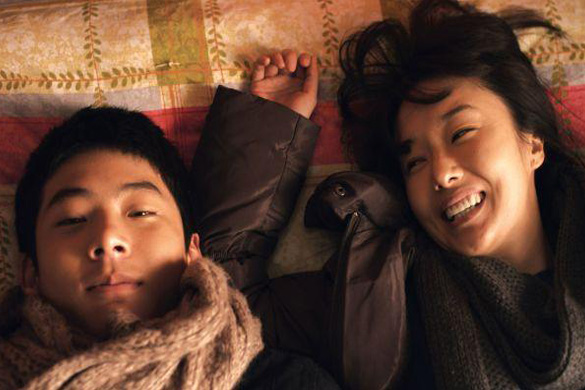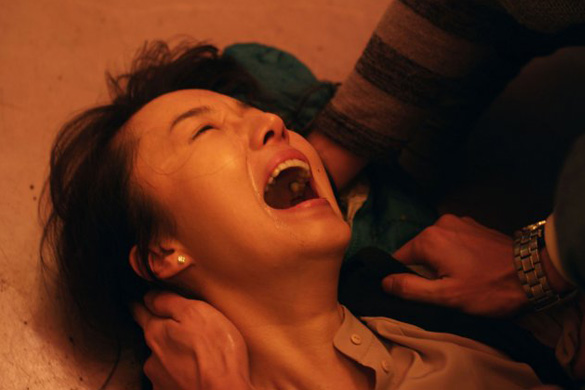
 |
|||||
While on probation, Ji-gu (Seo Young-ju) is somewhat duped into taking part in a home burglary having been told that the house in question is owned by one of his friend's relatives. When the owner of the property returns home mid-crime, Ji-gu and his compatriots hurriedly make their escape but are nonetheless rounded up by police and subsequently charged with breaking and entering. As a result of having been convicted before; breaking the terms of his probation; and having no known relatives or guardian save for his sickly grandfather who is virtually bedridden, Ji-gu is sentenced to a lengthy term of incarceration in a youth detention centre; a sentence that will also take him away from Sae-rom (Jeon Ye-jin), the young girl with whom he has fallen in love and recently started a relationship.
Review: On one level, 'Juvenile Offender' sits perfectly between ever popular Korean cinema depictions of disaffected youth and critiques focused on those who for one reason or another find themselves on the very edge of ‘normal’ society - whether largely ignored by the system as a whole; treated and/or dealt with as either unnecessary burdens on communities to be quietly swept under the carpet as quickly as possible; or seen as societal pariahs to be shunned by the populous in general, even leading to their ostracisation by 'normal' individuals/family members deeming their life choices (or lack thereof) to be unacceptable.
Social ills are referenced right from the first line of dialogue in the very first scene of ‘Juvenile Offender’ – a short segment showing Ji-gu and Sae-rom alone together in a dimly lit room, tentatively opening up about themselves and stating their feelings of affection towards each other before taking their newfound love to bed – with Sae-rom pointing out in a matter of fact manner that she was rather an unwanted child until her parents divorced at which point she became the subject of their fighting, being subsequently shunted around from one family member to another as each tired of the responsibilities of taking care of a child.
These references not only continue through the court case of the boys charged with burglary – one having gone off the rails because his mother has constantly to work until after midnight (i.e.: never being around at home); another committing crimes as rebellion against a violent father who has been repeatedly beating him; and Ji-gu, with no mother to keep him on the straight and narrow, having had to grow up all too quickly and undertake sometimes unlawful actions just to financially survive – but also permeate Ji-gu’s attempts to build a bond with his mother and rekindle his relationship with Sae-rom after his release from detention.
Not only that but they play a part in the women’s individual stories, too, subtly (yet increasingly) stressing the idea that blame can never truly be attributed to one individual without taking into consideration needs, lack of choice, necessity, the actions of others, and/or social/moral conventions and prejudices, in the process. The similarities between Sae-rom’s situation while Ji-gu is incarcerated (alone, pregnant, ostracised by her family and as such having had any semblance of choice stripped away) and what Hyo-seung faced when pregnant with Ji-gu underline this yet further and allow a noticeable implication that a social framework in which prejudices and moral ideas remain unchanged can almost be guaranteed to cause history to repeat itself, generation after generation, and in effect continue to create the very segment of society it sees as such a problem. Ultimately, it is Ji-gu’s realisation that he and his mother are incredibly alike that alone pushes his utter determination to make different choices to those she made in the past and thereby (hopefully) ensure things are different for Sae-rom, their relationship and their child in the future than they were for Hyo-seung, Ji-gu's (unknown) father and himself in the past.
Cast (Character... Actor/Actress): As a final note, you can also read the Hangul Celluloid 2014 individual interview with actor Seo Young-ju (discussing his career, including 'Juvenile Offender') at: http://www.hangulcelluloid.com/seoyoungjuinterview.html
'Juvenile Offender' (범죄소년 / 2012) - directed by Kang Yi-kwan
|
|||||
All images © FineCut, Time Story, South Park Film Review © Paul Quinn |
|||||
